Jack Hibbs age of A Survivor’s Story of Redemption and Advocacy for Life
Jack Hibbs is a prominent pastor and pro-life advocate known for his remarkable story of survival and faith. Jack Hibbs age is a significant factor in his long-standing commitment to his cause. Born on January 15, 1958, Hibbs’ entry into the world was marked by a dramatic attempt by his mother to terminate the pregnancy. His father, frustrated by the prospect of another child, had left for Alaska, leaving his mother to face the burden of an unwanted pregnancy alone. Despite her desperate attempt to abort him, Hibbs survived and was born against the odds. This harrowing experience of being an abortion survivor has profoundly shaped Hibbs’ life and ministry. Today, he serves as the senior pastor of Calvary Chapel Chino Hills, where he passionately shares his testimony and advocates for the value of every human life.
The purpose of this essay is to delve into Jack Hibbs’ personal journey from his traumatic beginnings to his influential role as a pastor and pro-life advocate. By exploring Hibbs’ early struggles, including the challenges of growing up with a stutter and a strained family relationship, this essay will highlight how these experiences shaped his faith and purpose. Furthermore, it will examine Hibbs’ conversion to Christianity, his healing process, and his subsequent advocacy for choosing life. Through this exploration, the essay aims to illustrate how Hibbs’ story serves as a powerful testament to the transformative power of faith and the importance of valuing every life.
I. Early Life and Family Background
A. Hibbs’ Family Situation
Jack Hibbs’ early life was shaped by a complex and challenging family dynamic. His parents’ relationship was strained from the beginning. Hibbs’ father, burdened by financial pressures and dissatisfaction with their growing family, made a critical decision that would impact their lives profoundly. In the summer of 1957, Hibbs’ father left their home in California for a work assignment in Alaska. This departure was more than just a physical separation; it represented a deep emotional and financial strain on his mother.
Hibbs’ father had expressed his frustration with the idea of a third child, setting a condition that he did not want to see a new baby when he returned. This demand placed immense pressure on Hibbs’ mother, who was already grappling with the challenges of raising two young children. With no supportive network to turn to, and feeling increasingly isolated and overwhelmed, she faced the daunting prospect of a new child alone. Her fears and desperation led her to take drastic measures. In December 1957, feeling that she had no other options, she attempted to terminate her pregnancy using a metal clothes hanger—a method that reflects both her desperation and the severe lack of resources available to her at the time.
Fortunately, the abortion attempt failed, and Hibbs survived. However, the attempt left his mother in poor health, necessitating hospitalization. This traumatic period was marked by significant emotional turmoil for the entire family. The strain of the attempted abortion and the ongoing difficulties of single parenthood during this time deeply affected Hibbs’ early years and his family’s dynamic.
B. Mother’s Background
Jack Hibbs’ mother, whose life had been characterized by hardship and instability, faced her own set of challenges before her marriage. Raised in a Catholic orphanage in Hawaii, she endured a childhood lacking the nurturing and affection that most children receive from their families. The orphanage environment provided basic care but was devoid of the emotional warmth and stability that are crucial for healthy development.
Her experience in the orphanage shaped her perceptions and expectations of life. Marriage was seen as a potential escape from her troubled upbringing and a chance for a fresh start. She married Hibbs’ father with hopes of creating a better life for herself and her future children. However, the reality of her marriage fell short of her expectations. Instead of finding solace, she encountered further difficulties, including the strain of raising children under challenging circumstances and her husband’s dissatisfaction with their growing family.
The disparity between her expectations and reality was stark. The burden of financial instability, emotional isolation, and her husband’s demands created a tumultuous environment. This backdrop of hardship and disillusionment was the crucible in which Hibbs’ early life was forged. The combination of his mother’s difficult upbringing and the strained dynamics with his father set the stage for the significant challenges Hibbs would face in his formative years.
II. The Attempted Abortion
A. Circumstances Leading to the Attempt
In 1957, the situation surrounding Jack Hibbs’ impending birth was fraught with desperation and emotional strain. His father, frustrated by the prospect of another child and feeling overwhelmed by the financial and emotional responsibilities of his growing family, made his position clear: he did not want a third child. His decision to leave for Alaska exacerbated the situation, leaving Hibbs’ mother alone to confront the consequences of an unwanted pregnancy.
The emotional burden on Hibbs’ mother was immense. With her husband’s departure, she was left to manage the household and care for her two older children under increasingly difficult conditions. The added pressure of an unwanted pregnancy, coupled with her isolation and lack of support, drove her to a state of profound desperation. Her fear of her husband’s reaction and her lack of alternatives led her to consider extreme measures.
At this time, societal and medical support for women in her situation was minimal. The stigma surrounding unplanned pregnancies and the limited access to safe medical procedures only heightened her sense of hopelessness. Without adequate counseling or support, Hibbs’ mother felt cornered and driven to make a drastic decision in the hopes of resolving her dire situation.
B. The Abortion Attempt
On a cold December night in 1957, Hibbs’ mother undertook a perilous attempt to end her pregnancy. Armed with a metal clothes hanger—an improvised and unsafe method—she lay down on a blanket on the kitchen floor, hoping to terminate the pregnancy. The act was both a physical and emotional gamble, reflecting her profound sense of desperation and isolation.
The attempt to induce abortion through such a method was fraught with danger and ineffectiveness. The procedure was not only extremely painful but also highly risky, leading to significant health hazards. Fortunately, the intervention did not succeed in terminating the pregnancy, but it resulted in severe complications for Hibbs’ mother. She was left with physical injuries and was subsequently hospitalized for her efforts.
The immediate aftermath of the abortion attempt was both traumatic and physically taxing. Hibbs’ mother’s hospitalization underscored the gravity of her situation, as she faced not only the consequences of her failed attempt but also the emotional and physical toll it took on her well-being.
C. The Outcome
Despite the desperate measures taken, Jack Hibbs was born on January 15, 1958. His birth marked a poignant moment in a narrative marked by hardship and strife. The fact that he survived despite the circumstances surrounding his conception and the abortion attempt became a defining aspect of his story.
In the immediate aftermath of his birth, Hibbs’ family faced ongoing challenges. His mother’s health was compromised, and the family continued to struggle with financial and emotional difficulties. However, Hibbs’ survival and eventual birth represented a glimmer of hope amidst the darkness of his mother’s desperate actions.
As Hibbs grew, the experiences of his early life, including the traumatic attempt at abortion, would shape his personal journey and spiritual awakening. His survival became a cornerstone of his testimony and a driving force behind his pro-life advocacy, demonstrating the profound impact of his early life experiences on his later ministry and beliefs.
III. Childhood and Struggles
A. Early Childhood Challenges
Jack Hibbs’ early childhood was marked by significant challenges, particularly his struggle with severe stuttering. From a young age, Hibbs experienced the difficulties of communicating effectively, which set him apart from his peers. This speech impediment not only made social interactions challenging but also subjected him to teasing and mistreatment from other children. The harsh realities of being different in a school setting compounded his feelings of isolation and inadequacy.
The constant ridicule and exclusion had a profound impact on Hibbs’ self-esteem and emotional well-being. Children who stutter often face social stigmatization, and Hibbs was no exception. The teasing and unkind remarks he endured contributed to a sense of alienation and self-doubt. These early experiences of social rejection were formative, shaping his perceptions of himself and his place within his peer group.
B. Family Dynamics
The complexities of Hibbs’ family dynamics further exacerbated his early struggles. His relationship with his father was notably strained. Hibbs sensed a lack of affection and support from his father, which contributed to a pervasive feeling of rejection. This emotional distance and perceived disapproval from his father deeply affected Hibbs, leading to feelings of hurt and anger. The lack of a supportive father figure during his formative years left a void in Hibbs’ emotional life, influencing his behavior and outlook.
The family’s ongoing struggles—financial difficulties, emotional stress, and the turmoil surrounding Hibbs’ mother’s attempt to abort him—created an unstable environment. These challenges did not provide the nurturing support that Hibbs needed during his early years. The tension and discord within the family contributed to his feelings of inadequacy and frustration. The environment he grew up in was fraught with difficulties that extended beyond his personal challenges, influencing his development and shaping his experiences.
The combination of his speech difficulties, social rejection, and strained family dynamics created a challenging upbringing for Hibbs. These factors contributed to a sense of instability and difficulty in forming secure relationships. However, despite these struggles, Hibbs’ resilience and eventual conversion to Christianity played a crucial role in transforming his life. His early hardships became a significant part of his testimony, illustrating his journey from a troubled childhood to a life of faith and advocacy.
IV. Turning Point: Conversion to Christianity
A. Discovery of Calvary Chapel Costa Mesa
Jack Hibbs’ life took a pivotal turn on June 20, 1977, when he stumbled upon Calvary Chapel Costa Mesa, a moment that would dramatically alter his trajectory. At that time, Hibbs was a high school junior grappling with the emotional scars of his early life and the ongoing struggles of adolescence. The discovery of Calvary Chapel Costa Mesa was serendipitous. Hibbs noticed a crowd of young people entering a building and, driven by curiosity, decided to follow them. This spontaneous decision led him to an experience that would profoundly impact his life.
Inside the church, Hibbs encountered a dynamic young pastor, Greg Laurie, who was known for his engaging and passionate sermons. Laurie, a key figure in the Jesus Movement, was renowned for his ability to connect with and inspire a diverse audience, particularly young people seeking spiritual answers. On that fateful evening, Laurie delivered a sermon that focused on the transformative power of the Gospel, emphasizing the necessity of being “born again” to enter the kingdom of God. This message, grounded in John 3:3b, struck a deep chord with Hibbs.
B. Personal Transformation
Hearing the Gospel for the first time was a profound and unsettling experience for Hibbs. The message of redemption and the promise of a new beginning resonated with him on a deep level. As Laurie spoke about the need for spiritual rebirth and the opportunity to have a personal relationship with Jesus Christ, Hibbs felt a powerful conviction and a sense of urgency. The stark contrast between the despair of his past and the hope presented by the Gospel was both illuminating and overwhelming.
Hibbs’ decision to give his life to Jesus Christ that evening marked a significant turning point. It was not merely an intellectual assent but a heartfelt commitment that signaled the beginning of a transformative journey. Embracing Christianity provided Hibbs with a new perspective on his life and experiences. The Gospel offered him a sense of purpose and belonging that had been elusive throughout his childhood and adolescence.
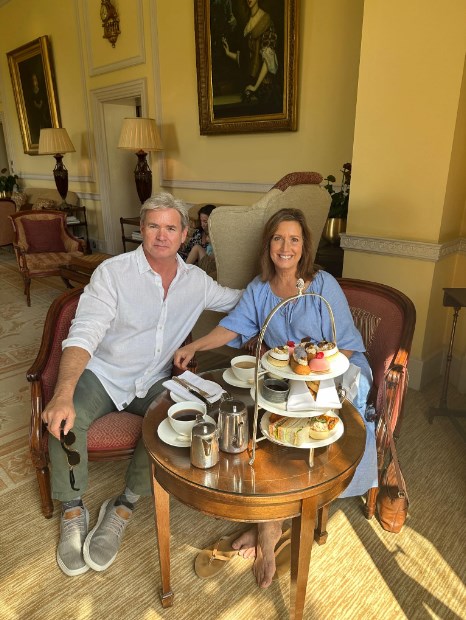
The significance of Hibbs’ conversion lay in its profound impact on his personal identity and future. Embracing faith brought healing and redemption to the emotional wounds he had carried. It redefined his sense of self-worth and purpose, shifting his focus from past struggles to a hopeful future. This newfound faith also set him on a path of ministry and advocacy, where he could channel his experiences and beliefs into a powerful message of hope and pro-life advocacy.
In summary, the discovery of Calvary Chapel Costa Mesa and the subsequent conversion to Christianity marked a transformative moment in Jack Hibbs’ life. It not only provided him with a renewed sense of purpose but also equipped him to become a vocal advocate for the value of life and the message of redemption, reflecting the profound impact of his spiritual journey on his personal and professional life.
V. Healing and Finding Purpose
A. Overcoming Personal Struggles
Jack Hibbs’ journey from a troubled childhood to a fulfilled life of ministry is marked by significant personal growth and healing. One of the most notable changes was the overcoming of his severe stuttering, which had plagued him throughout his early years. This speech impediment was not only a source of considerable frustration and social difficulties but also a barrier to effective communication and self-expression.
The healing of Hibbs’ stuttering was a transformative experience. It was not an instantaneous change but a gradual process that mirrored his broader personal development. His newfound faith played a crucial role in this transformation. The support and encouragement he received from his faith community, along with his personal commitment to spiritual growth, provided a foundation for overcoming his speech difficulties. Hibbs began to experience the benefits of prayer, counseling, and spiritual practices that contributed to his healing.
Moreover, Hibbs’ personal growth extended beyond the resolution of his stuttering. His faith journey helped him to confront and address various emotional scars from his past, including feelings of rejection and inadequacy. The process of healing involved not just physical improvement but also emotional and psychological growth. Embracing his faith allowed Hibbs to reinterpret his life experiences, finding new meaning and strength in the face of previous adversities.
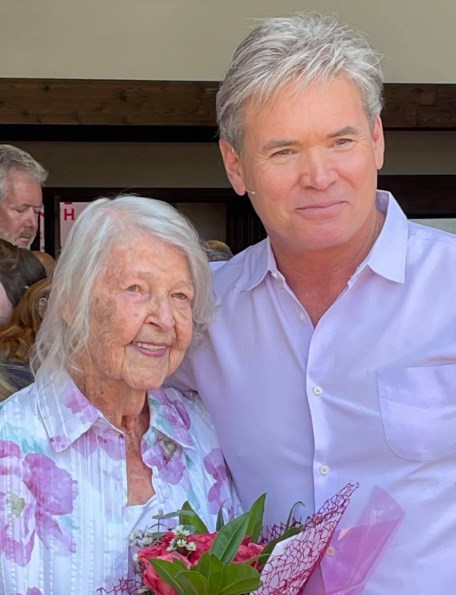
B. Divine Plan and Purpose
As Hibbs navigated his path of healing and personal growth, he began to recognize a deeper sense of purpose and calling in his life. His conversion to Christianity and subsequent experiences of healing led him to a profound realization of his role as a messenger of God. This realization was deeply influenced by his understanding of Jeremiah 1:5, which states, “Before I formed you in the womb I knew you; before you were born, I sanctified you; and I ordained you a prophet to the nations.”
The impact of this scripture on Hibbs’ life and ministry was significant. It provided him with a powerful affirmation of his divine purpose and calling. The verse resonated deeply with Hibbs, reinforcing his belief that his life, despite its difficult beginnings, had been part of a larger, divine plan. This realization gave him a sense of destiny and mission, compelling him to embrace his role as a preacher and advocate.
Hibbs’ ministry became a testament to his understanding of God’s plan for his life. His personal experiences of redemption and healing informed his approach to ministry, allowing him to connect with and inspire others facing similar struggles. His journey from a troubled childhood to a life of faith and purpose exemplifies the transformative power of divine intervention and personal commitment.
In summary, Jack Hibbs’ healing and personal growth were integral to his understanding of his divine purpose. Overcoming past struggles, including his stuttering, and embracing his faith led to a profound sense of purpose and calling. The influence of Jeremiah 1:5 on his life provided him with a powerful framework for understanding his role as a messenger of God, shaping his ministry and impacting countless lives.
VI. Advocacy for Life
A. Hibbs’ Message on Abortion
Jack Hibbs’ personal story as an abortion survivor profoundly influences his stance on the abortion debate. His narrative—emerging from a background of attempted abortion and growing up with significant personal struggles—provides a compelling and deeply personal perspective on the sanctity of life. Hibbs uses his life story as a powerful testimony to advocate for the pro-life cause, emphasizing the value and potential of every individual life, regardless of the circumstances surrounding their conception.
Hibbs’ advocacy is centered around the message that every life has intrinsic worth and purpose. He underscores the importance of choosing life, urging expectant mothers to consider the potential of their unborn children. Hibbs’ personal experience serves as a poignant reminder of the profound impact that choosing life can have, not only on the child but also on the parents and broader society. His story exemplifies the belief that every child, even under challenging circumstances, has the potential for a meaningful and impactful life.
His message extends beyond mere advocacy to offer practical and emotional support for those facing unplanned pregnancies. Hibbs encourages individuals to seek alternatives to abortion, emphasizing adoption and support networks as viable options. Through his ministry, he seeks to provide hope and resources for those who may feel overwhelmed or uncertain about their pregnancy decisions.
B. Biblical and Personal Arguments for Life
In his advocacy, Hibbs draws heavily on biblical scripture to support his pro-life position. Key passages such as Psalm 139:13-14a and Micah 6:7b play a central role in his arguments. Psalm 139:13-14a, which states, “For You formed my inward parts; You covered me in my mother’s womb. I will praise You, for I am fearfully and wonderfully made,” reinforces the belief that each individual is uniquely and divinely created. Hibbs uses this verse to highlight the sacredness of life from the moment of conception, arguing that every unborn child is a deliberate and valued creation of God.
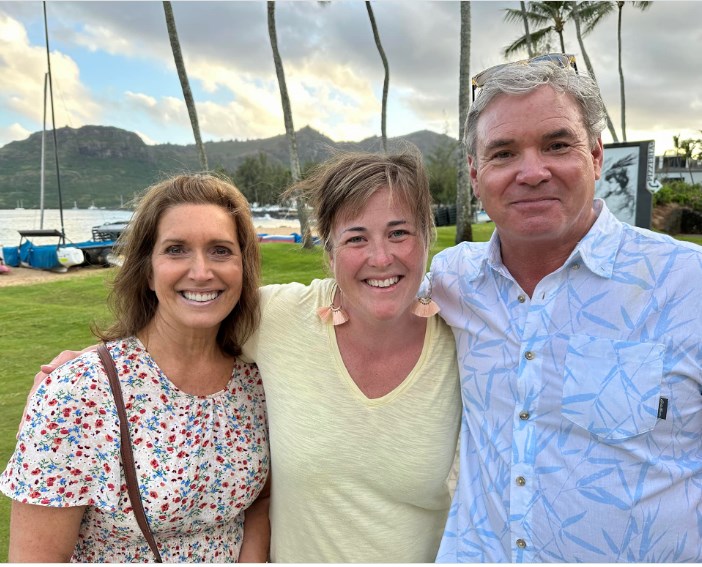
Micah 6:7b, “Shall I give my firstborn for my transgression, the fruit of my body for the sin of my soul?” serves as a caution against sacrificing one’s child for personal or circumstantial reasons. Hibbs interprets this verse as a call to reject abortion and instead choose life, emphasizing that the life of an unborn child should not be sacrificed for any reason.
Hibbs also incorporates personal testimonies into his arguments, sharing his own experiences and the transformative power of his faith. These testimonies serve to illustrate the broader implications of choosing life, both from a personal and societal perspective. He believes that choosing life aligns with God’s divine plan and brings about positive change, not only in the lives of individuals but also in the community at large.
Overall, Jack Hibbs’ advocacy for life is deeply rooted in his personal story and biblical convictions. His message emphasizes the sanctity of life, drawing on scripture to support his pro-life stance and offering practical alternatives to abortion. By sharing his own experiences and engaging with biblical teachings, Hibbs aims to inspire others to make choices that reflect the value and potential of every human life.
VII. Impact and Legacy
A. Hibbs’ Ministry
Jack Hibbs’ ministry at Calvary Chapel Chino Hills has been a significant aspect of his impact and legacy. As the founding pastor of the church, Hibbs has cultivated a dynamic and growing congregation through his passionate preaching and commitment to biblical teachings. His leadership has played a crucial role in shaping the church’s identity and outreach efforts.
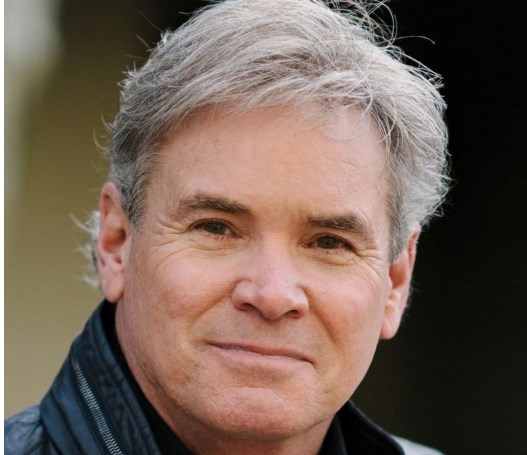
Under Hibbs’ guidance, Calvary Chapel Chino Hills has become known for its strong emphasis on conservative Christian values and community engagement. The church’s programs and services reflect Hibbs’ dedication to providing spiritual guidance and support to its members. His sermons often draw from his personal experiences and biblical insights, resonating deeply with the congregation and addressing contemporary issues from a faith-based perspective.
Hibbs’ influence as a pastor extends beyond the pulpit. He is actively involved in various aspects of church life, including community service and outreach initiatives. His leadership has helped to build a supportive and vibrant church community that seeks to address both spiritual and practical needs. The church’s growth and impact are a testament to Hibbs’ effectiveness as a leader and his commitment to fostering a faith-driven environment.
B. Broader Influence
Jack Hibbs’ personal story and advocacy for life have had a significant impact on the pro-life movement and beyond. His testimony as an abortion survivor provides a compelling and humanizing perspective on the value of every life. By sharing his experiences and emphasizing the importance of choosing life, Hibbs has contributed to raising awareness and shaping the conversation around abortion.
His advocacy efforts have influenced many individuals and families facing similar situations. Hibbs’ message offers hope and encouragement to those considering their options during an unplanned pregnancy. Through his ministry and public speaking engagements, he has provided a platform for discussing the value of life and the alternatives to abortion, including adoption and support for expectant mothers.
Hibbs’ influence is also evident in his role as a pro-life advocate and speaker. His engagement with various pro-life organizations and his participation in public debates have helped to amplify the message of the pro-life movement. By integrating his personal story with his advocacy, Hibbs has effectively communicated the broader implications of choosing life and the potential for positive change.
The impact of Hibbs’ work extends to the broader community, influencing both individuals and families who may face difficult decisions. His message has resonated with many, offering a perspective grounded in personal experience and faith. His efforts to advocate for life and provide support have made a meaningful difference in the lives of those who have heard his story and engaged with his message.
In summary, Jack Hibbs’ ministry at Calvary Chapel Chino Hills and his broader influence as a pro-life advocate reflect his significant impact and lasting legacy. His work as a pastor and his personal testimony have contributed to the pro-life movement, offering hope and inspiration to individuals and families facing challenging situations. Through his leadership and advocacy, Hibbs has left a meaningful mark on both his congregation and the wider community.
Jack Hibbs’ journey from an abortion survivor to a prominent pastor and advocate for life is a compelling narrative of resilience and faith. Born in 1958 after a failed abortion attempt by his mother, Hibbs’ early life was marked by significant personal challenges, including a stuttering issue and strained family dynamics. Despite these hardships, his life took a transformative turn when he encountered Christianity at Calvary Chapel Costa Mesa in 1977. Embracing the Gospel, Hibbs experienced profound personal growth and healing, including overcoming his stuttering.
As a pastor at Calvary Chapel Chino Hills, Hibbs has leveraged his personal testimony to advocate for the pro-life movement. His message underscores the inherent value of every life, drawing on biblical principles and his own experiences to argue against abortion. Hibbs’ story serves as a powerful reminder of the potential that every individual holds and the importance of choosing life, even in the face of adversity.
The significance of Jack Hibbs’ story extends beyond his personal triumphs and professional achievements. Jack Hibbs age is a testament to the wisdom and experience he brings to his advocacy work. His story illustrates a profound connection between faith, purpose, and advocacy. Hibbs’ experiences highlight how personal struggles can be transformed into a powerful message of hope and purpose through faith. His journey underscores the broader context of life advocacy, showing how individual stories can inspire others and effect positive change in society.
For readers, Hibbs’ story serves as a poignant encouragement to reflect on the value of life and the importance of making choices that align with one’s values and beliefs. His message of choosing life and seeking purpose resonates as a call to embrace the potential within every individual and to support others in making life-affirming decisions. Through his legacy, Hibbs offers both inspiration and a tangible example of how faith can guide and transform lives.
Age -Breaking Down Exit Velocity by Age How BRUCE BOLT Enhances Performance with Exit-Velocity-by-Age Insights
Maximizing Your Exit Velo by Age A Comprehensive Guide to Improving Your Baseball Performance
Understanding the Legal Drinking Age Punta Cana Dominican Republic What You Need to Know
Do Edibles Make You Age Faster? A Comprehensive Look at the Long-Term Effects of Cannabis
Your Complete Guide to Safe & Legal Child Travel, Including Booster Seat Age Florida Requirements
Championing Transparency and National Security: The Inspiring Journey of PSVF Fellow Ana Bower and Anna Bower’s Age
Consent for Routine Medical Care A Comprehensive Guide, Including What is the Age of Consent in Virginia
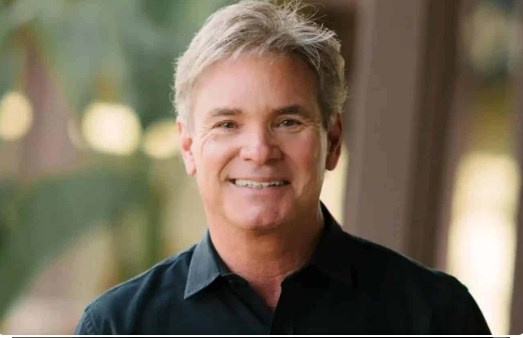


 | Sitemap | Mail
| Sitemap | Mail